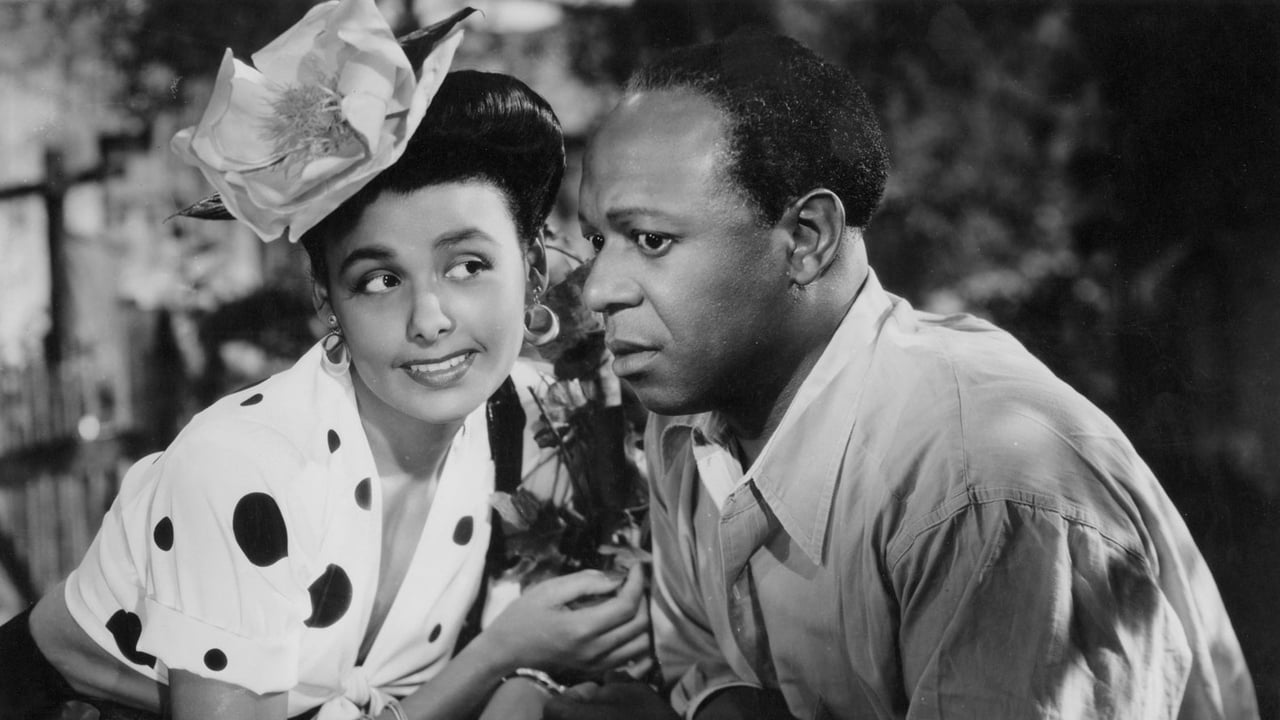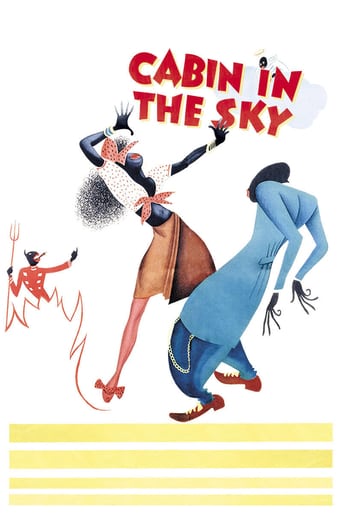



It's an amazing and heartbreaking story.
Just intense enough to provide a much-needed diversion, just lightweight enough to make you forget about it soon after it’s over. It’s not exactly “good,” per se, but it does what it sets out to do in terms of putting us on edge, which makes it … successful?
View MoreThe film's masterful storytelling did its job. The message was clear. No need to overdo.
View MoreThe tone of this movie is interesting -- the stakes are both dramatic and high, but it's balanced with a lot of fun, tongue and cheek dialogue.
View MoreFireworks of imagination in an intoxicating phantasmagoria of splendid innovations, Lena Horne and Duke Ellington crowning the show both musically and dramatically - the grand scene at John Henry's bar transcends most musicals in sheer flippant enthusiasm. The story is a kind of mental experiment, playing with life and death, and the gamble is high as you don't really know which is which. Rex Ingram is marvellous as Lucifer Junior, laughing his sides off throughout the picture, and the musical numbers are the real treats, especially the church scene in the beginning apart from the grand finale at the bar. The dialogue is ingenious throughout, and just to follow the witty argument makes it worth returning to the film to study it more in detail - there are so many fantastic details to catch up on the way, as the film practically is overloaded with splendid whims, and while it's all too realistic in its drama of life and death, it's at the same time like a fairy tale or parable, from which you can learn a great deal. This was only one out of many films by Vincente Minnelli over-proving that he was a genius.
View MoreSo rolling the dice is racist and stereotypical? No more than it is in "Guys and Dolls"! A great fable with the perfect cast Directed by the then-unknown Vincente Minnelli and produced by Arthur Freed. (The dance number "Shine" directed by Busby Berkley.) Outstanding performances by Ethel Waters, Eddie Anderson, Lena Horne, Duke Ellington and his Orchestra, Butterfly McQueen, and so many more. A beautiful and touching story and I was very pleased that almost everybody who reviewed it could see it for what it is: a joyous celebration of comedy, music, song, and dancing. The devil's bellboys vs. the all-dressed-in-white General and Army of the Lord both fight for the soul of "little Joe" a small-time gambler, who is given 6 months to reform due to his wife Petunia's powerful prayer to Heaven. Several recognizable songs, some by songwriter Harold Arlen (Wizard of Oz). Like Oz, the same characters appear in both the fantasy sequences and reality. There's even a terrific cyclone as the gambling hall is ripped to shreds by the "Wrath of the Lord" at the climax! Oh, I almost forgot to mention that it's an all-black cast and it's not in Technicolor, both of which are really minor details, to be sure. The deleted scene of Lena Horne's rather modest bubble bath is legendary! Look for it in the Pete Smith short on TCM or in "That's Entertainment Part III.)
View MoreThis unique, Musical fantasy was the first film directed by Vincente Minnelli. It stars Eddie 'Rochester' Anderson as Joseph 'Little Joe' Jackson, a man with a gambling problem whose wife Petunia, played by Ethel Waters, is so strong in her faith that her prayers enable her husband to receive a second chance. Little Joe's dealing with nefarious characters like Domino Johnson (John William Sublett) gets him shot, which leads to a scene in which the Devil's son Lucifer Jr. (Rex Ingram) is ready to take his soul to Hell before the Lord's General (Kenneth Spencer) intervenes and gives the gambler 6 months to reform. Ingram and Spencer also play characters in Little Joe's "real" life, a fellow gambler and Petunia's Reverend Greene, respectively. Ernest Whitman appears as one of Little Joe's creditors, and a club owner.Petunia represents one of Waters' few on-screen roles; she would go on to earn a Supporting Actress Oscar nomination for her role in Pinky (1949). She sings the film's Academy Award nominated Song - "Happiness Is a Thing Called Joe". On the other, Anderson, whose gravelly voice is as recognizable as Eugene Palette's, had already appeared in more than 50 films at this point in his career which spanned nearly 70 roles, most of which were stereotypical for Black actors of his era. Lena Horne, whose character also sings, plays the femme fatale, Georgia Brown, who Lucifer Jr. uses to tempt Little Joe during his reprieve. Louis Armstrong plays (his trumpet and) a minor role as one of Lucifer Jr.'s idea men, as does Mantan Moreland and shaky voiced Willie Best. Butterfly McQueen plays one of Petunia's friends and Duke Ellington appears (with his band) as himself; Cab Calloway also appears.
View MoreLittle Joe (Eddie "Rochester" Anderson) is a warehouseman in a small African-American town, married to Petunia (Ethel Waters), who falls ill and dreams the Lord and the Devil are testing him by allowing him to win the Irish Sweepstakes and sending him a tempting visitor in the form and person (what form, what person!) of Sweet Georgia Brown (Lena Horne). He more or less proves himself, pulls through, and he and Petunia carry on with their poor but happy lives.It's directed by Vincente Minelli and produced by Arthur Fried, without a white person in the cast. Some of the songs have become familiar standards -- "Happiness is Just a Thing Called Joe," "Shine," "Takin' a Chance on Love," and snatch of Duke Ellington's orchestra playing "Things Ain't What They Used to Be." The plot and dialog are folksy, unsophisticated, and without pretense. Eddie Anderson and his gravelly voice are amusing in themselves. Ethel Waters has a brilliant smile that changes her features into something benign, although she was apparently not easy to get along with. She disliked Lena Horne intensely here, and later developed a fully blown hatred between herself and director John Ford in "Pinky." Lena Horne is exquisitely feminine, singing, "There's honey in the honeycomb. There's jelly in the jelly roll," as she caresses her bare arms and shoulders.I suppose it's possible to read racism into a film like this but it got past me entirely. The actors and musicians were probably overjoyed at the chance to appear in a major film. (There was a kind of parallel cinematic universe of all-black films at the time, but they rarely had the budget or skill of mainstream movies.) Further, it's difficult to imagine a cast of any color giving better musical performances. Louis Armstrong has a few minutes on screen as a devil's assistant and is given a chance to toot out one or two choice phrases. And Ellington's orchestra was one of the best in the business.It's all very rural and cornball, of course, just as "Young Mister Lincoln" is, and "State Fair," in which a love song is sung to a hog.Relax and spend an enjoyable hour and a half with the simple, but not simple-minded, folk of this neighborhood. It's a pleasant diversion.
View More